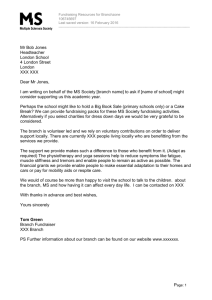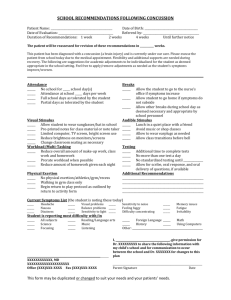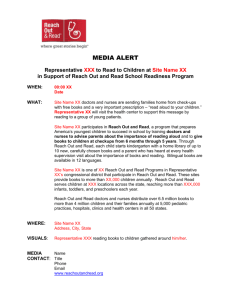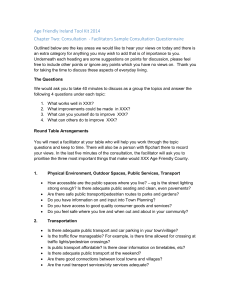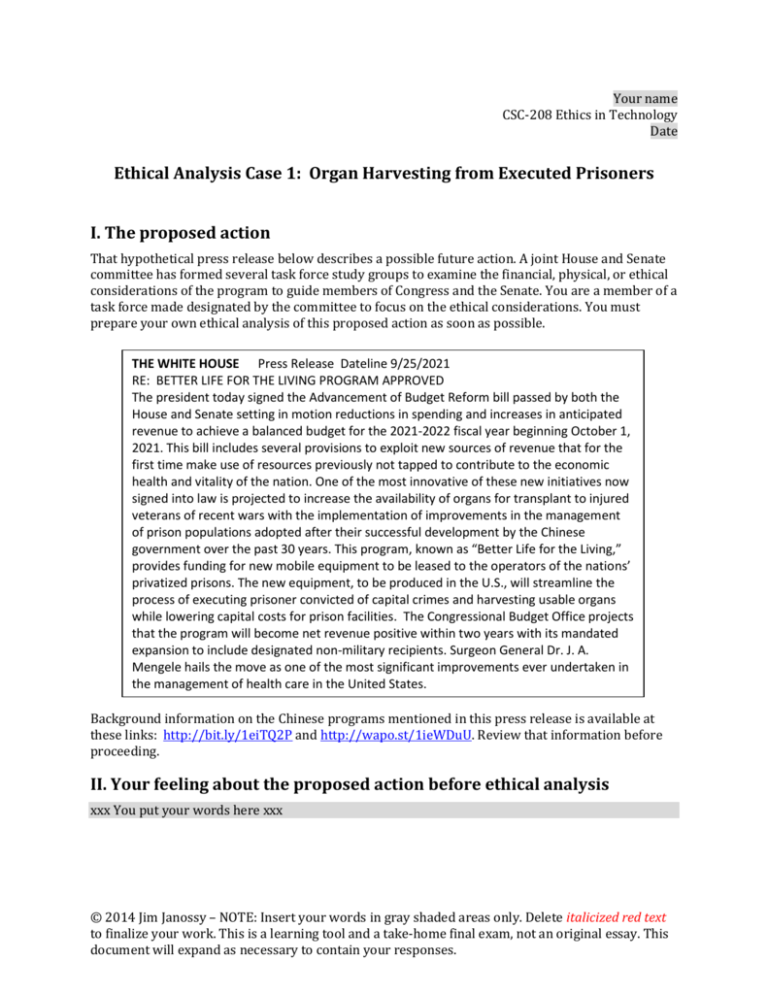
Your name
CSC-208 Ethics in Technology
Date
Ethical Analysis Case 1: Organ Harvesting from Executed Prisoners
I. The proposed action
That hypothetical press release below describes a possible future action. A joint House and Senate
committee has formed several task force study groups to examine the financial, physical, or ethical
considerations of the program to guide members of Congress and the Senate. You are a member of a
task force made designated by the committee to focus on the ethical considerations. You must
prepare your own ethical analysis of this proposed action as soon as possible.
THE WHITE HOUSE Press Release Dateline 9/25/2021
RE: BETTER LIFE FOR THE LIVING PROGRAM APPROVED
The president today signed the Advancement of Budget Reform bill passed by both the
House and Senate setting in motion reductions in spending and increases in anticipated
revenue to achieve a balanced budget for the 2021-2022 fiscal year beginning October 1,
2021. This bill includes several provisions to exploit new sources of revenue that for the
first time make use of resources previously not tapped to contribute to the economic
health and vitality of the nation. One of the most innovative of these new initiatives now
signed into law is projected to increase the availability of organs for transplant to injured
veterans of recent wars with the implementation of improvements in the management
of prison populations adopted after their successful development by the Chinese
government over the past 30 years. This program, known as “Better Life for the Living,”
provides funding for new mobile equipment to be leased to the operators of the nations’
privatized prisons. The new equipment, to be produced in the U.S., will streamline the
process of executing prisoner convicted of capital crimes and harvesting usable organs
while lowering capital costs for prison facilities. The Congressional Budget Office projects
that the program will become net revenue positive within two years with its mandated
expansion to include designated non-military recipients. Surgeon General Dr. J. A.
Mengele hails the move as one of the most significant improvements ever undertaken in
the management of health care in the United States.
Background information on the Chinese programs mentioned in this press release is available at
these links: http://bit.ly/1eiTQ2P and http://wapo.st/1ieWDuU. Review that information before
proceeding.
II. Your feeling about the proposed action before ethical analysis
xxx You put your words here xxx
© 2014 Jim Janossy – NOTE: Insert your words in gray shaded areas only. Delete italicized red text
to finalize your work. This is a learning tool and a take-home final exam, not an original essay. This
document will expand as necessary to contain your responses.
Page 2 of 9 pages
III. Ethical analysis
a. Act Utilitarianism ethical framework
Background
Act Utilitarianism is closely associated with Jeremy Bentham, a philosopher of the Enlightenment.
According to Bentham’s concept of utilitarianism, in order to determine the most ethical action,
We are morally obligated to consider all our options, all actions we might perform,
and choose the one that most conforms to the demands of utilitarian principle.1
The Utilitarian principle, that is, “utility,” is described in this way:
Utility is the tendency of an object to produce happiness or prevent unhappiness for
an individual or community. Depending on the circumstances, you may think of
“happiness” as advantage, benefit, good, or pleasure, and “unhappiness” as
disadvantage, cost, evil, or pain.2
Act Utilitarianism directs that one has to consider the benefits and losses associated with the
outcome of a specific, one-time action, rather than actions that are to be carried out by everyone:
The act utilitarian considers only the results or consequences of the single act.3
In essence Act Utilitarianism simply dictates that we judge the ethicality of any proposed action by
what amounts to a simple arithmetic comparison. We assess the amount of “pleasure,” or in a
broader way of thinking, the positive benefit of the action to the affected parties, and the negative
consequences of the action to those or other parties. Assuming that positives and negatives can be
measured in some consistent way we can compare them and determine which is greater. If the
amount of benefit is greater the action is ethical. This is sometimes summed up in the phrase “the
greatest good for the greatest number.”
Application of the framework
Let’s analyze who will be affected by the proposed “Better Life for the Living” action, and in
whether the impact on each of these parties would be positive or negative, then let’s see if we can
assess what the “sum” tells us:
Who is affected
How?
xxx You put your words here xxx
xxx You put your words here xxx
xxx You put your words here xxx
xxx You put your words here xxx
xxx You put your words here xxx
xxx You put your words here xxx
xxx You put your words here xxx
xxx You put your words here xxx
Overall, it appears that the impact of this action is more xxx than xxx. Act Utilitarianism therefore
determines that the Better Life for the Living program is xxx.
Law and BioEthics, p.1
Quinn, p.74
3 Pecorino, p.1
1
2
Page 3 of 9 pages
b. Rule Utilitarianism ethical framework
Background
Rule Utilitarianism developed from a problem that confronted Act Utilitarianism: the extensive
analysis that every intended action would require. Instead of every action being evaluated on its
own, a rule is formed and “tested” to see what the result (the “sum” being positive or negative)
would be if everyone followed the rule:
Rule utilitarianism is a form of utilitarianism that says an action is right as it conforms
to a rule that leads to the greatest good...4
“Greatest good” is defined not only to affect the immediate parties, but across society:
Rule-utilitarians hold that rules should be evaluated to determine whether they
produce more happiness or more pain for the greatest number of people.5
In order to perform a Rule Utilitarian ethical analysis it’s necessary to take some steps different
from the analysis that would be done under Act Utilitarianism:
... rule utilitarianism would have us ask two questions:
1) “What general rule would I be following if I did this particular action?” and
2) “Would this rule, if generally followed, maximize happiness?”6
According to Rule Utilitarianism, we don’t analyze each action, we create a rule and analyze the
effect if everyone followed it. This eliminates the need to do a lot of calculations and replaces that
with a rational determination arrived at with simple logic. Note the WE form the rule for the ethical
analysis, “rule” doesn’t refer to some pre-existing law or requirement.
For example, we don’t ask “I’m hungry and broke, would it be ethical to shoplift a sandwich from
the cafeteria since they would never miss it?” That would be an Act Utilitarian analysis involving
figuring out how much my hunger would be satisfied versus what assumed negligible loss the
cafeteria might experience, somehow trying to compare these things using a common measure that
would be difficult or impossible to determine. We also might have to factor in the risk of getting
caught and the negative consequences of that, a third factor also hard to put into the comparison.
The analysis could come out indicating the action was ethical or not, depending on how we
measured these things to compare them—an altogether imprecise process.
Instead, under Rule Utilitarianism, we form a suitable rule and test that to see the outcome if that
rule were followed by everyone. The rule could be “Everyone should steal what they need if they
can’t afford to buy it.” What would happen if everyone followed that rule? The consequences would
be more negative than positive because everyone would probably often be the victim of theft and
prices in stores would rise a lot to cover huge losses. So in this case Rule Utilitarianism would judge
the action to be unethical just on that logical basis without involving a lot of calculations.
Application of the framework
xxx You put your words here xxx
Rule_utilitarianism, p.1
Law and BioEthics, p.1
6 Warren, p.1
4
5
Page 4 of 9 pages
c. Kantianism/rights ethical framework
Background
Kantian ethics, sometimes called a “rights” approach to ethics, was originated by Immanuel Kant, a
German philosopher who lived in the 1700s. He argued that reason is the source of morality. His
system of ethics is expressed in
... a “categorical imperative” that we must act in such a way that we could will the
maxim according to which we act to be a universal law.7
The “maxim” is a rule that everyone follows, that’s what “universal” means. This is expressed in two
“principles” that can identify whether a proposed action is ethical:
For Kantians there are two questions that we must ask ourselves whenever we
decide to act:
1. Can I rationally will that everyone act as I propose to act? If the answer is no,
then we must not perform the action.
2. Does my action respect the goals of human beings rather than merely using them
for my own purposes? Again, if the answer is no, then we must not perform the
action.8
The first of these Kantian principles means we have to form a rule and test it.9 But we don’t test the
rule to see if it provides “the greatest benefit to the greatest number” as we would with Rule
Utilitarianism. Instead, we have to test it to see if it is logically rational.
The second Kantian principle says we must:
...act in such a way that you always treat humanity, whether in your own person or in the
person of any other, never simply as a means but always at the same time as an end.10
To be ethical in the Kantian framework the action that is proposed has to be able to be performed
by everyone, that is, all people for individual actions or all societies for actions taken by groupings
of people without creating an effect that is illogical. The action also has to not take advantage of
someone, that is to “use” them for some purpose that does them no good. An example would be to
ask the question, “is it ethical to lie?” The first principle: what if everybody lied? This would not be
rational; no one could trust anyone in any dealings. The second principle: does it “use” anyone and
disadvantage them? Clearly, if the person being deceived believes the lie they are being “used”
somehow to their disadvantage. Both principles tell us that according to Kantian ethics it’s
unethical to lie. It’s really that simple to apply Kantian ethics!
Application of the framework
xxx You put your words here xxx
Critique, p.1
Gaskill, p.1
9 Note that this could be the same rule that we formed for our Rule Utilitarian ethical analysis, but we must
“test” it differently here in Kantian analysis. As with that earlier analysis this rule is NOT some pre-existing
law or requirement; we form this rule specifically for the analysis.
10 O’Neill, p.1
7
8
Page 5 of 9 pages
d. Justice and Fairness ethical framework
Background
As early as ancient times it was recognized by Aristotle as a principle of fairness that equals should
be treated equally:
When two persons have equal status in at least one normatively relevant respect, they
must be treated equally with regard to this respect. This is the generally accepted
formal equality principle that Aristotle formulated in reference to Plato: “treat like
cases as like”...11
In modern form the Justice and Fairness approach to ethics is associated with the equality fairness
principle. This framework originates from the publication of A Theory of Justice by John Rawls in
1971.12 In this book Rawls uses the idea of a “veil of ignorance” as a thought experiment to identify
the way people would design a society if none of the parties to that process knew what status or
position they would eventually occupy in the society. This approach has been described in this way:
The Fairness Approach focuses on these things across the spectrum of society:
fair and equitable distribution of good and harm
the social benefits and social costs.
The Fairness Approach starts with these premises:
all equals should be treated equally
those who are unequal due to relevant differences should be treated
differently in a manner that is fair and proportionate to their difference.13
Different types of justice have been defined which describe different types of positives and
negatives for different purposes in society:
Distributive justice refers to the extent to which society's institutions ensure that
benefits and burdens are distributed among society's members in ways that are fair
and just... retributive justice refers to the extent to which punishments are fair and
just... compensatory justice refers to the extent to which people are fairly
compensated for their injuries by those who have injured them.14
Even further though, Rawls defines a second principle. He feels that benefits created by actions
should fall mostly on those in society who need them the most:
What does Rawls' Second Principle mean? It means that society may undertake
projects that require giving some persons more power, income, status, etc. than
others, e.g., paying accountants and upper-level managers more than assembly-line
operatives, provided that the following conditions are met:
(a) the project will make life better off for the people who are now worst off, for example,
by raising the living standards of everyone in the community and empowering the
least advantaged persons to the extent consistent with their well-being, and
(b) access to the privileged positions is not blocked by discrimination according to
irrelevant criteria.15
Equality, p.2
http://en.wikipedia.org/wiki/John_Rawls
13 Capsim, p.1
14 Velasquez, p.4
15 Garrett, p.3
11
12
Page 6 of 9 pages
In summary, the Justice and Fairness ethical framework demands that we judge a proposed
action by looking at who in society benefits from the action and who suffers a burden due if
the action is taken. Distributive, retributive, and compensatory justice are all just ways to
categorize the basis or reason for the action but these aren’t distinctions crucial to the ethical
analysis.
For the action to be considered ethical, the action has to have the ring of “fairness” to it,
meaning that there is a consistency in the way the action is taken in regard to who benefits
and who suffers or pays. Different individuals can fairly be treated differently, but only if the
differences are relevant to the action. Some examples:
It would be unfair to charge people with red hair more college tuition than people with
black hair, but it is fair to charge more to people who live out of state than to local
residents because those living out of the state have not paid state taxes that support
the school
In the same way it is unfair and unjust to provide different levels of service or pay to
people based on their race, gender, or their religion, but it is fair to pay people
differently based on their job performance and skill level.
If the Federal government is going to provide funds for free school lunch programs to
children of poor families it cannot fairly or justly do that and limit the funds only to
rural areas and not to urban areas.
In addition, according to Rawls’ second principle, an action that brings benefit is still not
ethical unless it will make life better off for the people who are now worst off; the action is
not fair if it only benefits the better-off elements of society or benefits them more, or if it
imposes less of a burden on the well-off than it does on the poor. For this reason, a sales tax is
judged unethical by this framework because it imposes a greater burden on low-income
people than on higher-income people, while a graduated-scale income tax is more ethical.
Application of the framework
xxx You put your words here xxx
Page 7 of 9 pages
e. Social Contract ethical framework
Background
The Social Contract ethical framework originated in the Enlightenment when philosophers were
trying to establish a basis for the authority of the state over individuals. It’s no surprise that this
was on their minds because the notion that the nation was properly headed by a king who ruled by
“divine right” was being challenged as religion itself was being challenged:
Social contract arguments typically posit that individuals have consented, either
explicitly or tacitly, to surrender some of their freedoms and submit to the authority
of the ruler or to the decision of a majority in exchange for protection of their
remaining rights.16
Thomas Hobbes is closely associated with the development of the Social Contract theory because he
described the state of society without some form of government as:
The condition of Man...is a condition of War of every one against every one... [In a state
of war there are] no arts; no letters; no society; and which is worst of all, continual
fear and danger of violent death; and the life of man [is] solitary, poor, nasty, brutish,
and short.17
In other words, the only alternative to establishing the idea of a social contract between individuals
and their society was anarchy and self-preservation in which everyone suffers. And even much
earlier, Socrates had provided an explanation for why he must remain in Athens and face a verdict
of death which seemed unjust: he had to obey the law of the duly constituted government of the city
because he had benefitted from it and thereby had entered into a contract with it:
In the early Platonic dialogue, Crito, Socrates makes a compelling argument as to why
he must stay in prison and accept the death penalty, rather than escape and go into
exile in another Greek city. He personifies the Laws of Athens, and, speaking in their
voice, explains that he has acquired an overwhelming obligation to obey the Laws
because they have made his entire way of life, and even the fact of his very existence,
possible.18
Plato makes the case of the Social Contract theory as simply as it is possible to state it. Justification
for it having established it as a viable ethical theory, it’s only necessary to ask one question in order
to apply the theory to ethical analysis. Is the action legal according to the laws of the society in
which it is to take place? If the law permitting or initiating the action has been enacted by the
government in which the parties to the action have chosen to live, and has been found to be legal by
a court if challenged as to its legality, the action must be judged to be ethical.
Application of the framework
xxx You put your words here xxx
Contract, p.1
Hobbes, p.1
18 Plato, p.1.
16
17
Page 8 of 9 pages
IV. Outcome and recommendations
An introductory sentence or two…
xxx You put your words here xxx
Ethical framework
Is it ethical?
Comments, cautions and constraints
Act Utilitarianism
xxx
xxx You put your words here xxx
Rule Utilitarianism
xxx
xxx You put your words here xxx
Kant/rights approach
xxx
xxx You put your words here xxx
Fairness and Justice
xxx
xxx You put your words here xxx
The Social Contract
xxx
xxx You put your words here xxx
22. Overall determination of ethicality (you must decide how to reconcile conflicting ethical
framework outcomes and make a recommendation as to what action if any should be taken. This
involves original thinking, analysis, and judgment. You can’t just leave the issue with the table and
figure someone else is going to decide the overall ethicality!)
xxx You put your words here xxx
23. Recommendation of actions including adjustments and safeguards and mitigating constraints;
conditions that should be imposed for proceeding with the intended action:
xxx You put your words here xxx
V. Your own personal feelings about the action after ethical analysis
24. What you think after analysis:
xxx You put your words here xxx
Page 9 of 9 pages
Bibliography
Capsim
Five Ways To Shape Ethical Decisions: Fairness Approach.
http://bit.ly/1kATZoY. Retrieved June 3, 2014
Contract
Social contract. http://en.wikipedia.org/wiki/Social_contract . Retrieved
June 3, 2014.
Critique
Critique of Practical Reason and Groundwork for the Metaphysic of Morals.
http://www.sparknotes.com/philosophy/kant/section2.rhtml. Retrieved
May 5th, 2014.
Equality
Stanford Encyclopedia of Philosophy, Equality.
http://plato.stanford.edu/entries/equality. Retrieved June 3, 2014.
Garrett, Jan
Rawls' Mature Theory of Social Justice. Department of Philosophy and
Religion, Western Kentucky University.
http://people.wku.edu/jan.garrett/ethics/matrawls.htm#2ndprin.
Retrieved June 3, 2014.
Gaskill, Dan
Kantian Ethics. Department of Philosophy, California State University
Sacramento. http://bit.ly/1hVNpEO. Retrieved May 5th, 2014.
Hobbes, Thomas
Leviathan, as quoted in Thomas Hobbes - Quotes.
http://www.egs.edu/library/thomas-hobbes/quotes. Retrieved June 3,
2014.
Law and BioEthics
Act Utilitarianism. http://bit.ly/1x0ZGBx. Retrieved May 5th, 2014.
O’Neill, Onora
A Simplified Account of Kant’s Ethics.
http://people.morrisville.edu/~galuskwj/oneill.html. Retrieved April 26,
2014.
Pecorino, Philip
Utilitarianism. Social Sciences-Chapter 8: Ethics. http://bit.ly/1p4y6yK.
Retrieved May 5th, 2014.
Plato
Social Contract Theory, in The Internet Encyclopedia of Philosophy.
http://www.iep.utm.edu/soc-cont/#H1. Retrieved June 3, 2014.
Quinn, Michael J.
Ethics for the Information Age, 2nd edition. New York: Pearson-Addison
Wesley, 2006. ISBN 0-321-37526-2.
Rule Utilitarianism.
http://en.wikipedia.org/wiki/Rule_utilitarianism. Retrieved April 26, 2014.
Velasquez, Manuel
Justice and Fairness. Markkula Center for Applied Ethics of the University of
Santa Clara, Santa Clara, California.
http://www.scu.edu/ethics/practicing/decision/justice.html. Retrieved
June 3, 2014.
Warren, Dona
Act vs. Rule Utilitarianism. Department of Philosophy, University of
Wisconsin Stevens Point. http://bit.ly/1mNQedN. Retrieved May 5th, 2014



